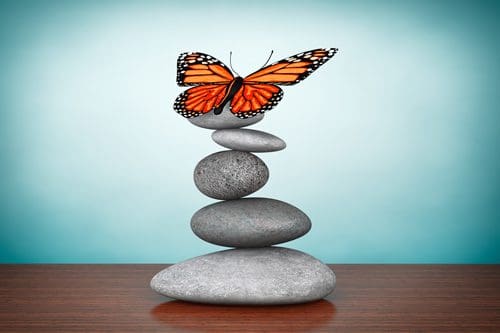 Holistic therapy is often a misunderstood application, especially when discussed as treatment for drug and alcohol addiction.
Holistic therapy is often a misunderstood application, especially when discussed as treatment for drug and alcohol addiction.
What Is Holistic Therapy?
The National Institute on Drug Abuse stresses medical evidence that addiction is a brain disease: there’s proven alteration of brain and body chemicals as a result. Other experts may nod to brain disease, but also point to other contributing factors such as environment, learned behavior, and personality traits.
Holistic therapy as a medical application is defined by Oxford Dictionary as “treatment of the whole person, taking into account mental and social factors, rather than just the physical symptoms of a disease.”
Different Needs for Different People
Where some controversy lies regarding holistic therapies for treating addiction may be in the aspect of absolutes. Using only holistic methods may work for one person, but another may require medication-focused detoxification and rehabilitation. Someone else may find alternative techniques helpful while in recovery as to not be reliant on additional medication.
A reputable rehabilitation facility may provide a combination of scientifically-sound treatment methods as well as complementary or alternative holistic resources, such as yoga or acupuncture, in a customized program unique to each individual. Furthermore, a patient should always have informed consent during every stage of treatment or allow for approved counsel consent on his or her behalf.
How Holistic Therapeutic Techniques May Help
In many treatment plans, holistic therapy is implemented only after detoxification and remission is achieved as a way to help people with a number of lifestyle aspects. This includes:
- Cope with cravings
- Not be as reactionary to triggers
- Create a plan for overall wellness, including diet and exercise
- Achieve better sleep
- Deal with mild or situational depression or anxiety
- Be more accepting of body and self
- Manage stress and negative thoughts
Once again, it’s often a combination of science-based applications supported by holistic techniques that enables someone to move beyond addiction and into a life of whole wellness.
These recovery solutions address the whole being, not just the condition. For example, there are favorable studies of how the combination of breath and movement in yoga has a positive impact on the vagus nerve, the command center of the central nervous system.
When someone practices yoga regularly, he or she allows for a faster, more controlled response of the vagus nerve, which transmits signals throughout the body. These signals help reduce inflammation, lower stress and fear reactions, prompt better relaxation, and other parasympathetic actions.
Because of this, a treatment facility such as Twin Lakes Recovery Center may offer yoga to residents as a valuable holistic approach to help them effectively manage stress, sleeplessness, trigger reaction, and the aches of withdrawal.
There are many yoga disciplines designed specially to work with people in or out of rehab, such as Yoga of 12-Step Recovery, which incorporates a traditional 12-step program along with aspects of practice; and the Transformation Yoga Project, which cites a number of research sources that explain why yoga may help some people. Additionally, “prescribing” yoga may be part of a renewed health and wellness effort and encourage a new sense of belonging with people focused on the same lifestyle goal.
There are also emerging studies supporting acupuncture’s ability to help reset a person’s brain after drug or alcohol abuse. One intent is to calibrate more natural dopamine response that’s been stunted by artificial stimuli. Acupuncture is another way that a holistic technique may complement a medically-guided treatment plan.
Types of Holistic Therapies
A key factor in holistic therapy is the patient is just as responsible for his or her well-being at the practitioner. This is no different than addiction treatment, and perhaps a reason why certain alternative approaches work better for some people than others.
Here are just a few therapies often used in addiction recovery:
- Acupuncture
- Aromatherapy
- Biofeedback
- Creative arts therapy
- Herbal therapy
- Homeopathy
- Hypnosis
- Massage and other bodywork
- Meditation and spirituality
- Qigong
- Yoga
For descriptions on these and other popular approaches, visit the Addiction Recovery Guide.
Do Your Research
One concern in the field of addiction treatment is that holistic therapies are essentially hokum, and people are being taken advantage of while in their most vulnerable states. There are professionals who warn against treatment centers and shady backroom remedies that tout the all-natural, non-Westernized approach to recovery. And there’s some truth to this.
If you or someone you love needs addiction treatment, examine all aspects of a facility carefully. Consult the attending staff, review the treatment guidelines and continuum of care plans, and if you can, tour the center. Make certain the approach to healing is tailored to specific medical needs. If certain holistic treatments are also offered, ask how they work and why.
If you or a loved one is considering alternative therapy during recovery, WebMD provides important reminders about choosing a holistic professional:
- Whether it’s a chiropractor, naturopath, acupuncturist, massage therapist, yoga teacher, or other holistic treatment provider, check credentials. Also review his or her training, hospital affiliations, and professional organizations. Get recommendations from trusted sources.
- Remember, this is whole person treatment. Alternative therapists should examine the big picture, including diet, sleep habits, emotional state, exercise routine, contributing medical conditions, and other factors. Make sure to align with a professional who comprehends that you’re not just a disease.
- Find someone who understands addiction and works to support what you’ve already accomplished. For example, your treatment may include a low-dose antidepressant. An alternative therapist may believe you can come off of it without consequence, but it’s critical that he or she consult your treatment guidelines and, with your permission, the plan administrator or physician to discuss alternative options to medication.



